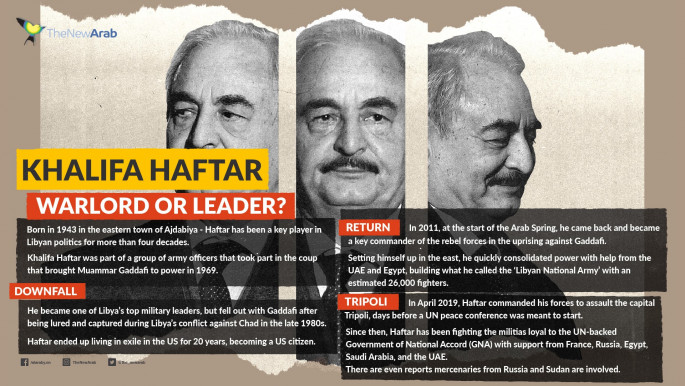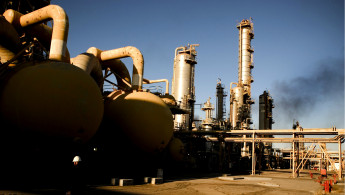Libya says oil output down 75 percent due to Haftar blockade
Libya's oil production has plunged by around three-quarters since forces loyal to military strongman Khalifa Haftar launched a blockade a week ago, the National Oil Corporation announced Saturday.
The fall, from 1.2 million barrels per day to just over 320,000, has caused estimated losses of $256 million since the closure of major oil fields and ports in the east and south of the country, the NOC said in a statement.
Haftar, who controls the east and large swathes of the south, began an offensive in April last year to seize the capital Tripoli from the UN-recognised Government of National Accord.
Pro-Haftar forces blockaded the main oil terminals in eastern Libya the day before a summit in Berlin on January 19 that called for the end of foreign interference in the conflict and a resumption of the peace process.
The move to cripple the country's main income source was a protest against Turkey's decision to send troops to shore up Haftar's rivals.
Turkey has backed the Tripoli-based GNA, while Haftar has had support from Russia, the United Arab Emirates and Egypt.
Exports were suspended at the ports of Brega, Ras Lanouf, Al-Sidra, Al-Hariga and Zweitina in the country's "oil crescent", the conduit for the majority of Libya's crude exports.
 |
|
| Click to enlarge |
The NOC also denounced the closure of valves at a pumping station in the southwest, which shut down production at the major fields of Al-Sharara and Al-Fil.
The corporation made assurances that "fuel is still available in most regions" of Libya, but called for an end to the blockades "to ensure continuing supply of fuel products to all regions and to restore vital revenues to the Libyan economy".
The oil-rich North African state has been in turmoil since a 2011 NATO-backed uprising that overthrew and killed dictator Muammar Gaddafi.
Its oil sector has frequently been the target of attacks.
'Immediate resumption'
A ceasefire that went into effect January 12 at the initiative of Moscow and Ankara has been broadly respected, according to the United Nations, but the two camps have accused each other of violations.
To consolidate the truce, the UN plans to hold inter-Libyan talks "within days" in Geneva.
An initial meeting of a military commission established at the Berlin summit - comprising five GNA loyalists and five Haftar delegates - will seek to define ways of consolidating the ceasefire.
This will be followed by political negotiations to try to bring an end to the crisis.
The embassies of the United States and the United Kingdom as well as the European Union delegation in Libya called this week for the "immediate resumption" of NOC operations, warning of the risks of exacerbating the humanitarian situation in the country.
Oil production had already plummeted to less than 500,000 barrels per day between 2014 and 2016 due to fighting and attempts by rival factions to control the country's key resource.





 Follow the Middle East's top stories in English at The New Arab on Google News
Follow the Middle East's top stories in English at The New Arab on Google News
![Netanyahu furiously denounced the ICC [Getty]](/sites/default/files/styles/image_330x185/public/2024-11/GettyImages-2169352575.jpg?h=199d8c1f&itok=-vRiruf5)
![Both Hamas and the Palestinian Authority welcomed the ICC arrest warrants [Getty]](/sites/default/files/styles/image_330x185/public/2024-11/GettyImages-2178351173.jpg?h=199d8c1f&itok=TV858iVg)
